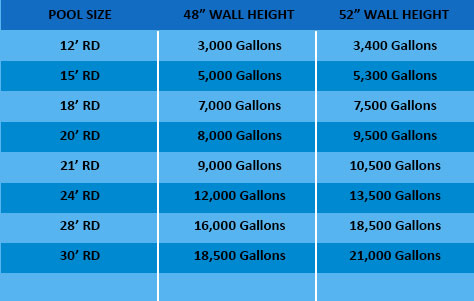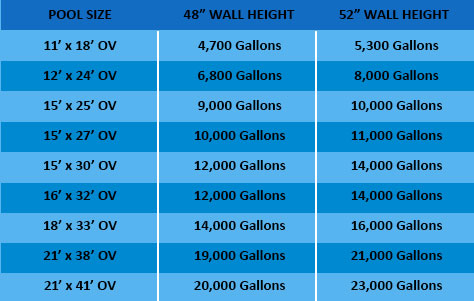
Have cloudy water? Try a clarifier or flocculant! This tried and true method will leave you with crystal clear water in no time. Easy to use, be sure to follow the instructions on the package. Whether you want 1 quart or plan to stock up, at PoolSupplies.com we have you covered.
If you’d like more information on clarifiers, check out our Clarifiers Buyer’s Guide and FAQ.
You’ll want to follow the instructions for the clarifier you get. It will give you a specific dosage based on your pool’s water capacity, in gallons.
If you don’t already know your pool’s capacity, you’ll need to find the volume of your pool. Here’s a quick formula you can use:
Length x Width x Average Depth x Multiplier = Volume in Gallons


If you encounter turbid water, it is advisable to consider employing a clarifier. It is recommended to use a clarifier when initially opening your pool. Before doing so, it is important to identify the underlying cause of the cloudiness, which could be attributed to factors such as improper chlorine levels, a congested filter, imbalanced pH and alkalinity, or various other reasons. Additionally, it is crucial to ensure that your pool's water chemistry is appropriately balanced. If necessary, a clarifier should be used weekly, while keeping the filter running continuously during the treatment. It is essential to exercise caution when measuring the chemicals, as excessive use of clarifiers may lead to murky water and the growth of bacteria.
At PoolSupplies.com, we offer a flocculant or pool floc as an alternative option. Similar to a clarifier, pool floc operates by aggregating smaller particles and causing them to form larger ones; however, these larger particles do not get filtered out but rather sink to the bottom and require manual vacuuming. Flocculants tend to work more quickly but necessitate a more hands-on approach. It is worth noting that flocculants cannot be used with cartridge filters unless the filter is bypassed during the vacuuming process. On the other hand, floc is compatible with sand filters and DE filters. Although floc requires more effort compared to a clarifier and results in some water loss due to vacuuming, it can clear up cloudy water within one to two days. To prevent stirring up the particles, it is important to vacuum slowly, and multiple vacuuming sessions should be conducted to ensure all particles are effectively removed.